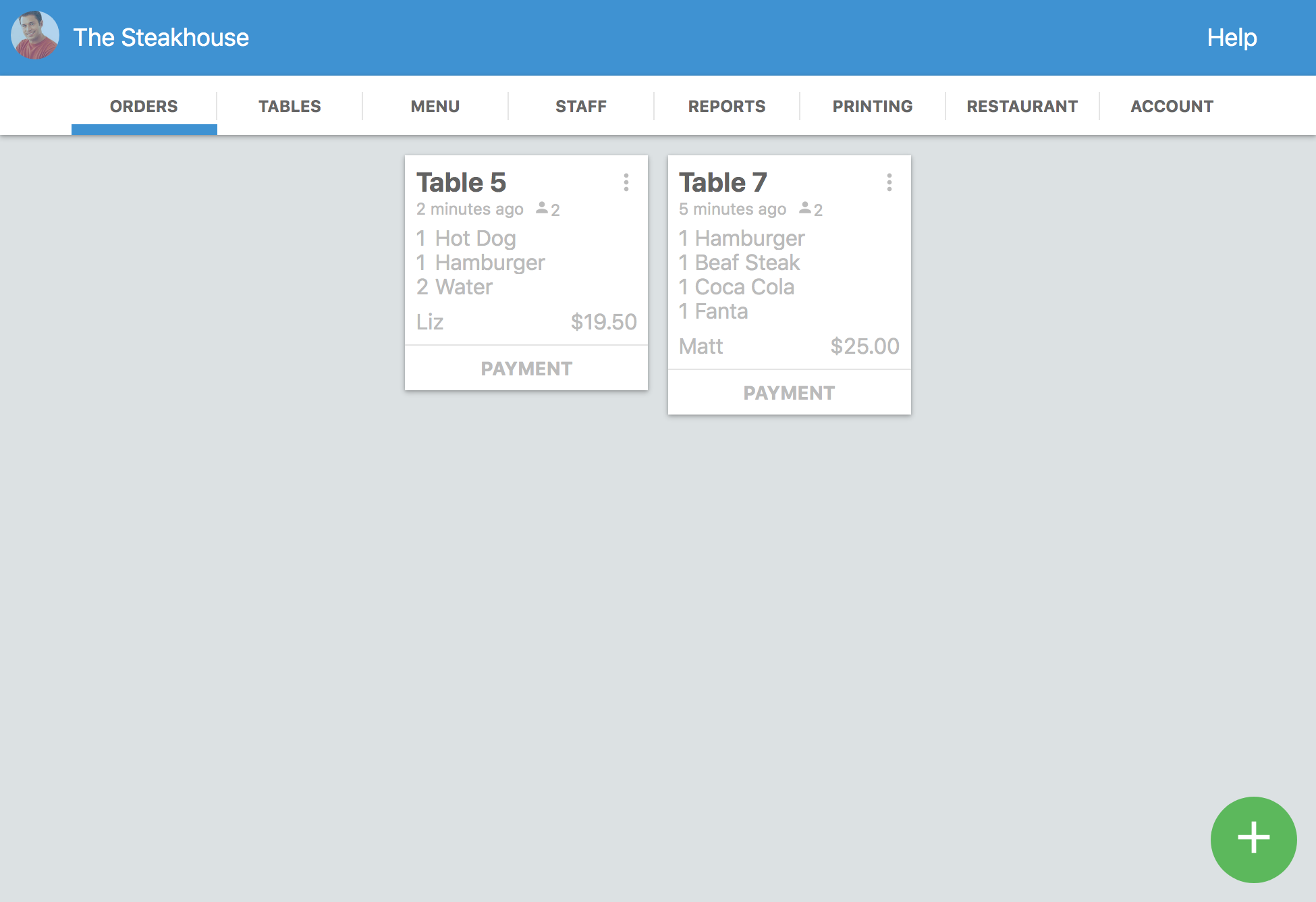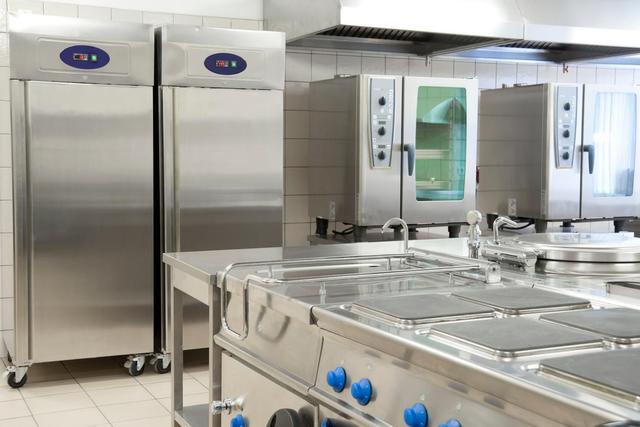Do you know what the functions of a restaurant manager are?
Do you want to improve your management skills?
A manager is in charge of keeping the restaurant running efficiently, seeking strategies to improve its operation, quality, presentation, service, and other key aspects of running a food business.
But, there are more functions that you may not know about. In this article, I will tell you about:
- The main functions of a restaurant manager
- How much does a restaurant manager earn
- The different types of restaurant managers
- And, I will also give you some tips to improve as a manager
In addition, I will answer a common question among owners of restaurants - should a restaurant owner be the manager?
When you finish this article, you will have enough information to improve as a manager, find a new manager for your business, or perform the functions of a manager in your own restaurant.
Do you have what it takes?
Let's find out!
What Is a Restaurant Manager?

The manager or administrator of a restaurant is a person who is in charge of directing the operation of a restaurant. However, depending on the type of food business, the manager’s functions can vary greatly - as I will explain later.
The manager role can be imposed by hiring a qualified person to run the restaurant in place of the owner, although it can also be a role performed by the owner in person.
Above all, a manager is the leader of the restaurant, he is the one who makes the decisions in real-time and the one in charge of solving problems in the service.
All the Duties of a Restaurant Manager
As I mentioned earlier, the manager can fulfill different functions depending on the type of food business he is part of.
For example, a fast-food restaurant manager performs very different roles than a fancy or fine dining restaurant manager.
The duties of a manager may also vary depending on their knowledge and experience. In some cases, a manager is only responsible for delegating functions, correcting errors, implementing strategies to improve the service, among other activities.
But that's not all, as he can also perform specific activities depending on his specialty.
A manager can have many skills that can increase his obligations in the restaurant and outside of it, as he can even become a spokesperson for the company at all kinds of events, handle marketing campaigns, and more.
Despite that, there are several main or standard roles that managers must fulfill. I will tell you more about them below.
Administrative Functions of a Restaurant Manager

The functions of a manager with respect to the administration of a restaurant are specific but very important. In some cases, the manager takes care of the administration directly.
The most common administrative functions of this role are:
- Meet the established budget for supplies
- Dealing with suppliers
- Make sure the restaurant has good inventory control or doing it in person
- Organize opening hours and employee working schedules
- And ensure that good practices are always applied in the different areas of the restaurant to maximize resources and maintain good results.
These are not all the administrative functions of a manager, however, they are the most common in the industry.
In large restaurants, these functions are divided between the administrator and the manager, if they are separate positions.
Marketing Functions of a Restaurant Manager
A restaurant manager can also be in charge of implementing or managing marketing strategies, be they digital or traditional marketing.
This is because the manager must make sure to always maintain a good image for the restaurant.
The most common functions are:
- Create and apply marketing strategies
- Strengthen current marketing strategies
- Direct the restaurant's digital marketing effort
- Manage marketing metrics and create strategies to improve them and take advantage of opportunities
- Take charge of directing or delegating social media marketing or SEO activities to a community manager or digital marketing expert
- Create objectives based on the restaurant's business plan
- Solve problems in the restaurant quickly and effectively to maintain a good image
A restaurant manager can take care of all these activities if he has experience with digital marketing, traditional marketing, and in the area of customer service.
A manager can also appear on social media, in videos, or images, as a spokesperson for the restaurant.
Leadership Roles of a Restaurant Manager
The leadership of a restaurant manager is a crucial aspect.
The previous functions also have to do with the leadership of the manager, but the functions of this point will be those related to the personnel. They are the following:
- Take charge of improving the work environment in the restaurant
- Ensure that the correct processes and procedures are applied for the operation of the restaurant
- Deal with employees to motivate, sanction, promote, or let them go if necessary
- Encourage teamwork among the different employees
- Answer questions, resolve personnel conflicts, and set goals for each employee.
Without a restaurant manager running the business and staff, it is possible to assume that the business will fail.
Customer Service Roles of a Restaurant Manager
A manager should also have an active approach towards customer service, as it is the only way that he can improve the diners' experience in the restaurant.
Some related functions are:
- Keeping customers comfortable inside the restaurant
- Maintaining a pleasant atmosphere in the restaurant
- Training the staff to improve customer service
- Improving service strategies
- Resolving problems, doubts, questions, complaints, and conflicts with customers
These functions are vital for the diners visiting the restaurant to be satisfied with all aspects of the service, aside from the food.
Other Functions
Other functions of a restaurant manager include:
- Taking charge of monitoring daily, weekly and monthly earnings and profit.
- Verify that all kitchen areas are clean and tidy.
- Verify that everything is in order when the restaurant closes. For example, checking taps, gas, lights, and more
- Coordinate events outside the restaurant, such as catering services, or special events
- Interview, hire, train, and supervise new employees
Depending on the specific restaurant, a manager may have more or fewer functions than the ones I mention here.
Types of Restaurant Managers

There are different types of restaurant managers depending on the type of restaurant in which they work.
They can perform different functions, from the most complicated to the simplest, and still be called restaurant managers.
Below I will talk in-depth about the different types of managers.
Restaurant Managers
Restaurant managers are typically managers who perform basic managerial functions in a restaurant. In a restaurant, there may even be two managers to be in charge of running the restaurant at different times.
They have the lowest salaries of all types of managers.
Restaurant Manager With Administrative Functions
Some managers must fulfill administrative functions for the restaurant, which divides their activities into direct supervision, and administrative activities behind a desk.
Larger restaurants employ these types of managers to direct the accounting efforts, business alliances, and restaurant management.
They usually have an assistant manager to be in charge of directing and supervising the staff directly instead of the manager.
Kitchen Managers

The kitchen manager is the one who makes sure that everything in the kitchen works properly. This role can be found in some large-scale restaurants, such as hotel restaurants.
This type of manager or administrator can also handle inventory, ordering, and other expenses related to supplies and ingredients.
General Manager
The general manager is in charge of directing every aspect of the restaurant, from the kitchen to the service provided by the waiters.
It is a very demanding job, especially since it has to fulfill many functions.
Regional Manager

Some restaurant chains have the role of regional manager.
They are the ones in charge of establishing the procedure manuals for the restaurants of a chain, which are then applied by restaurant managers or managers with administrative functions.
This position of regional manager is a bit more complex since it has almost all the functions of a normal manager, except those of direct supervision in the different restaurants of the chain.
In addition, it must be in charge of distributing the unique or standardized products of the chain, such as some inputs, ingredients, and more.
This is a more administrative and strategic position, and it requires studies related to business, business management, and more.
Assistant Manager
The assistant manager is the right hand of the general manager. He is in charge of fulfilling the same functions as the general manager in his place. However, it is a lower-ranking position, as most functions are assigned to him by the general manager, who has the final decision on every aspect of the restaurant. Think of Dwight, from The Office.
How to Be a Good Restaurant Manager

Being a good restaurant manager involves many skills, practical skills, studies, and more.
The truth is that a restaurant manager can amalgamate a wide variety of skills to perform his role more efficiently.
Here are some characteristics of a good manager:
- Good communication skills
- Excellent organization and attention to detail
- Leadership
- Problem-solving skills
- Good physical condition, as they will have to stand and walk a lot
- Good energy levels
- Experience in different hospitality and service industry areas
- Administrative studies
- Accounting studies
- Marketing and digital marketing studies
- Business management studies
- And experience in the different roles of a restaurant, like cooking or waiting tables
If you have some of these skills, you may already qualify as a good manager.
However, a vital factor in being a good restaurant manager is experience. If you don’t have experience managing personnel or in any branch of the food industry or customer service, you may not be able to perform this role correctly.
I recommend that you read our article on how to manage staff in your restaurant, as there you will find more great tips that will help you improve your staff management skills.
How Much a Restaurant Manager Earns

If you want to become a restaurant manager, you may want to know in advance an estimate of the earnings you can expect. However, it is almost impossible to know how much a manager will earn, since there are many factors that influence the final figure.
Some of them are:
- The restaurant's location, size, organization, and number of staff
- The duties of the position
- The manager's expected goals, be it improving service, optimizing staff, and more
- The manager's experience
For example, a new manager in Mexico will not earn the same as an experienced manager in Spain. Still, a restaurant manager in Cancun, a highly touristy area, can earn more than the same manager in Spain.
Therefore, the best way to know how much a manager earns is to find out the average salary of the place where you are. You can also use online job search platforms, like Glassdoor, the newspaper, and even social media to find out.
Should You Be the Manager of Your Own Restaurant?
Finally, the million-dollar question. A lot of restaurant owners decide to be the managers of their own businesses.
Is it a good idea?
There can be many reasons behind this decision, such as wanting to cut costs, wanting to learn how to do it, and more.
Still, it is a complex decision that cannot be taken lightly.
A restaurant requires attention, dedication, and specific skills like those mentioned above. So it's a good idea to hire someone with experience running a restaurant.
Even if you have a management degree, the experience of running a restaurant is unique, and very important if you want to be successful.
If you do not have experience, it is best to hire someone to do it for you, especially if you can learn from them.
If you do have experience, then nothing stops you from doing it, since you possibly have what it takes to do it successfully.
Are you a good restaurant manager?




